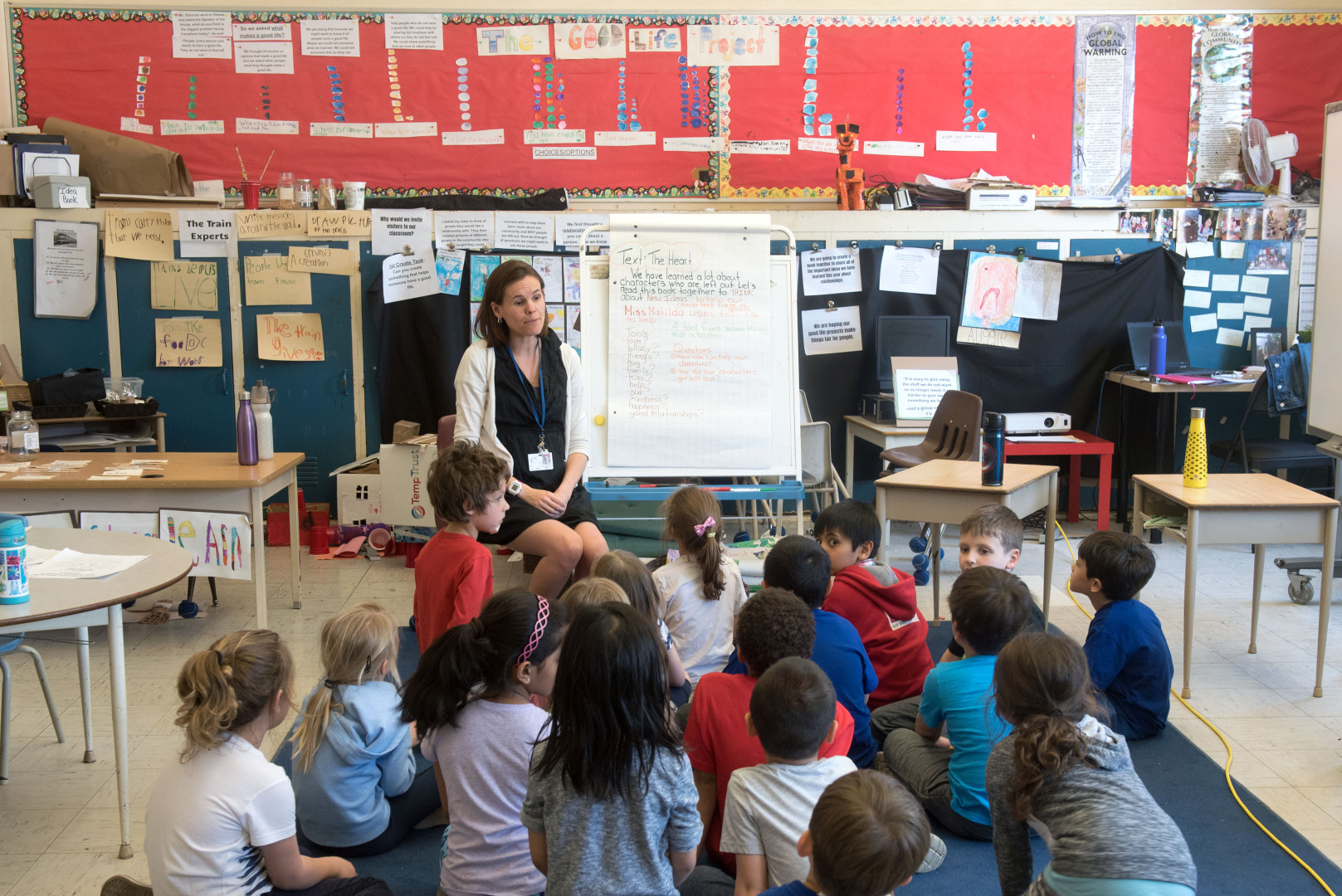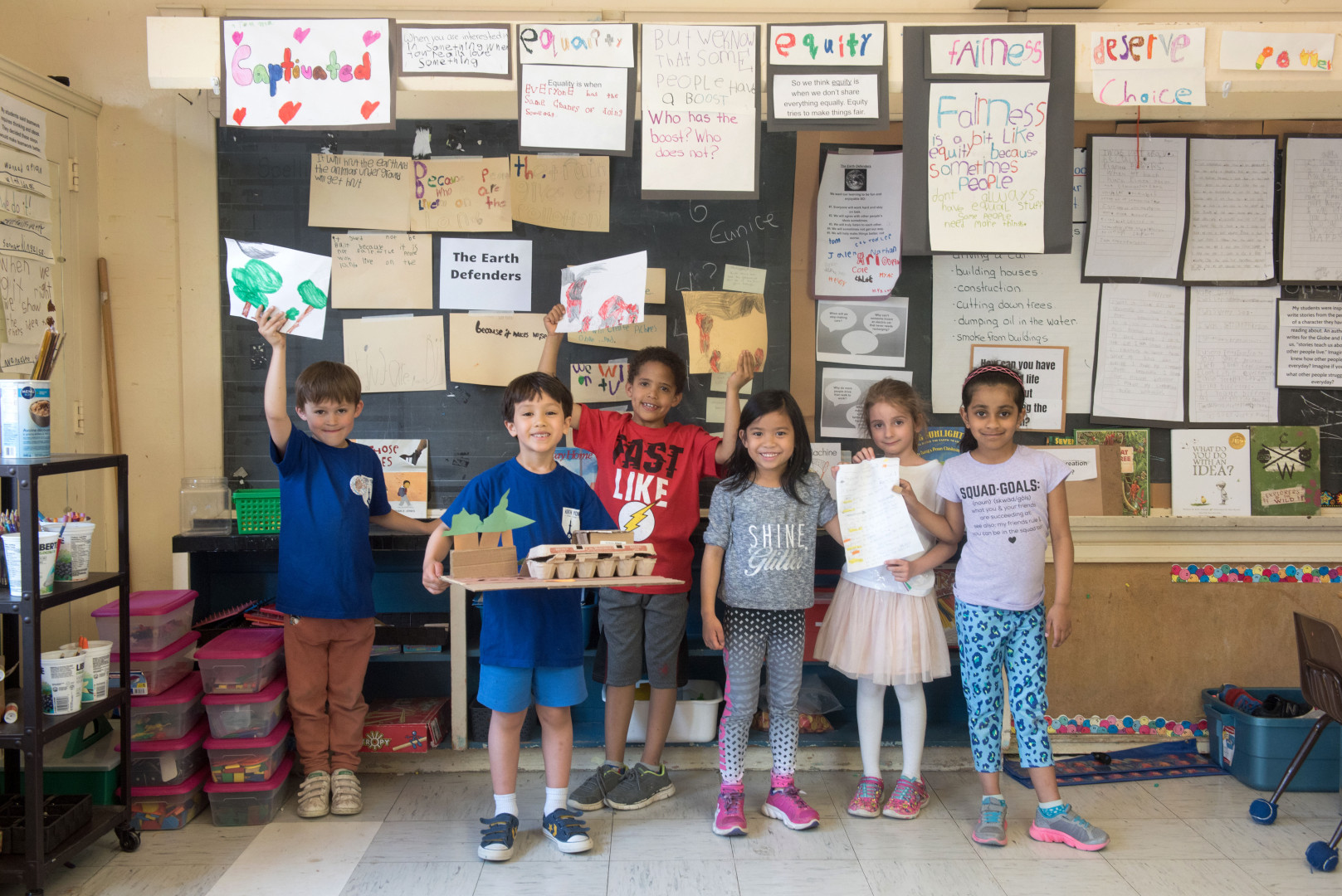
They’re only six years old, but they’re learning to write from someone else’s perspective.
They quiz grown-up visitors about why some people get excludedfrom community life.
And they’re excited to be able to tell you just what it means to be fair.
This may be Grade 1, but teacher Stephanie Donovan is already planting the seeds of equity and inclusion in her class at Oriole Park Public School in north Toronto. Through books, social studies activities and Circle Time, she is laying the groundwork for the focus on equity that the Toronto District School Board wants to fuel everything it does.
This is more than the usual lessons in kindness and sharing. Gently but strategically, Donovan is introducing her young learners to the idea of privilege; that some people in our communities get left out through no fault of their own, while others thrive – and that isn’t fair.
“The goal is not to have them think about charity – about food banks and fundraising – but to understand that a community is where we all work, live and play, and when some people get left out, we need to think about how to include them,” says Donovan.
It’s an issue they have invited community visitors to talk to them about; a newspaper columnist, the local Member of Parliament, a nurse practitioner and an immigrant taxi driver.
Donovan posts these key “big words” in block letters around the class, along with the children’s thoughts. “Equity. We think equity is when you don’t share everything equally. Equity tries to make things fair.” “Equality means everyone has the same chance of doing something.” “Fairness is a bit like equity.”
The themes course through their read-aloud storybooks and even games. In one activity Donovan calls a “giant social experiment,” she handed students random numbers of cubes – some got 10, others got none, most got something in between – but explained the ideal is to end up with 10.
One boy protested: "This game isn’t fair - some kids started with a boost!" When Donovan asked if they did anything to earn it, “they all understood the boost was handed to them.” And that was the message of the game.
“Part of this is to teach kids that sometimes you don’t have a choice, or a say, or a voice. You might want more of something, but it doesn’t happen, no matter what you do. This is a huge concept for young kids, but an important one to at least begin a conversation about,” she says. “So when they get into older grades, they hopefully see that their privilege was not always earned, and that we need to find better ways to make life easier for some.”
In the Writing Corner is a bundle of popsicle sticks, each bearing the name of a character from a book they have read. A student chooses a stick and then writes a letter or a postcard from the “perspective” of the character on that stick. Learning to consider someone else’s point of view is a first step toward empathy – and equity.
One morning, two of Donovan’s students picked characters from the book “Four Feet, Two Sandals” about Afghani girls who meet in a refugee camp. One girl’s family gets to move to America, while the other does not. Imagining themselves as those faraway characters, the two Canadian girls wrote letters to each other.
As early as Grade 1, the concept of equity is taking root across the TDSB.
